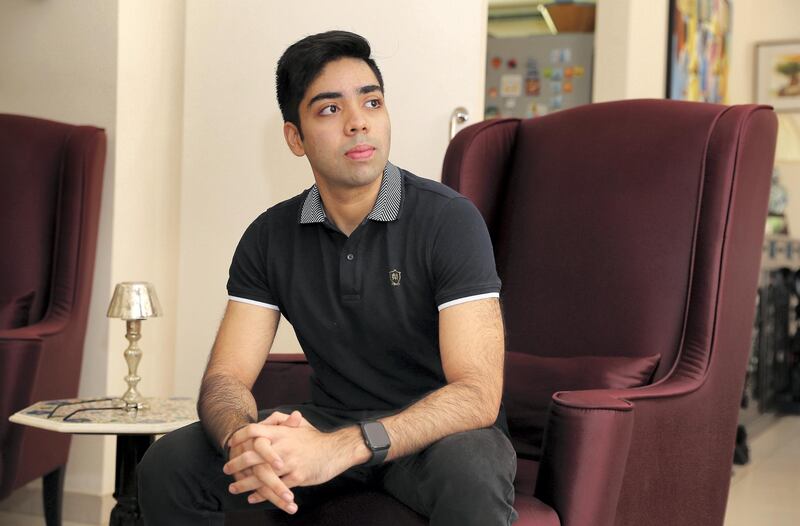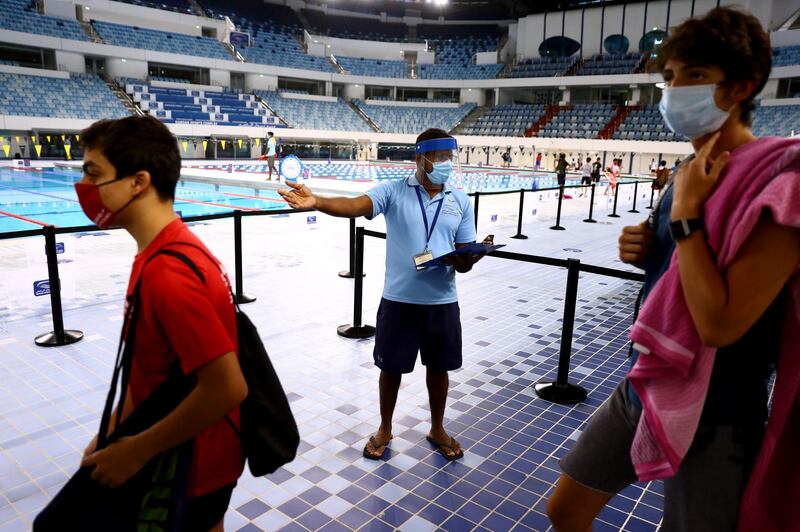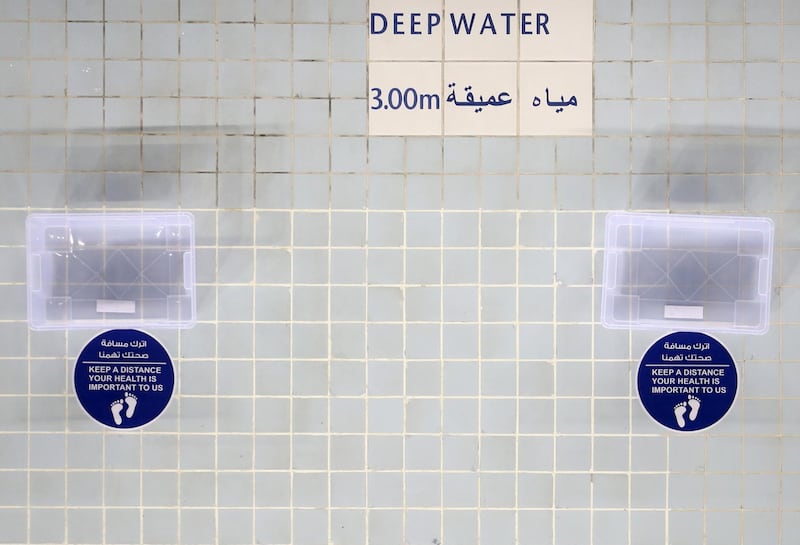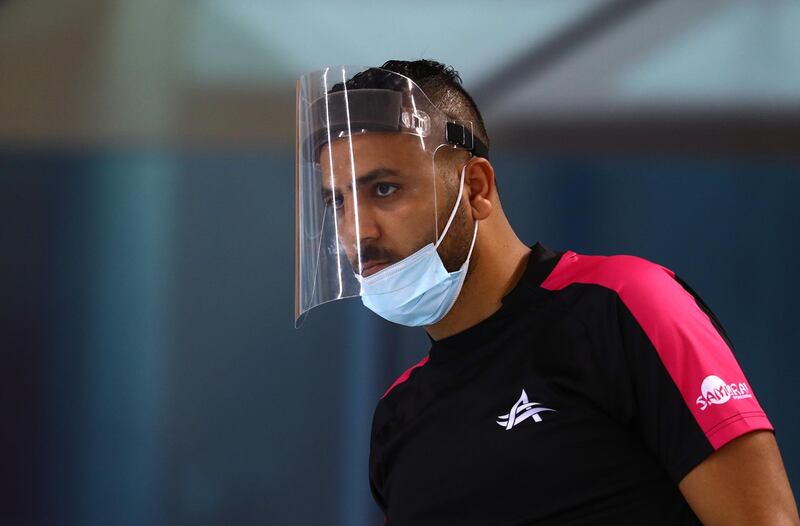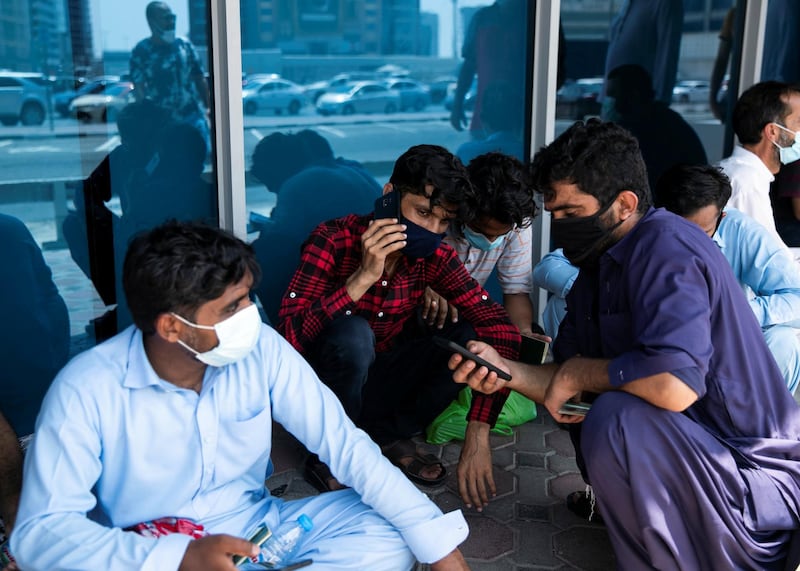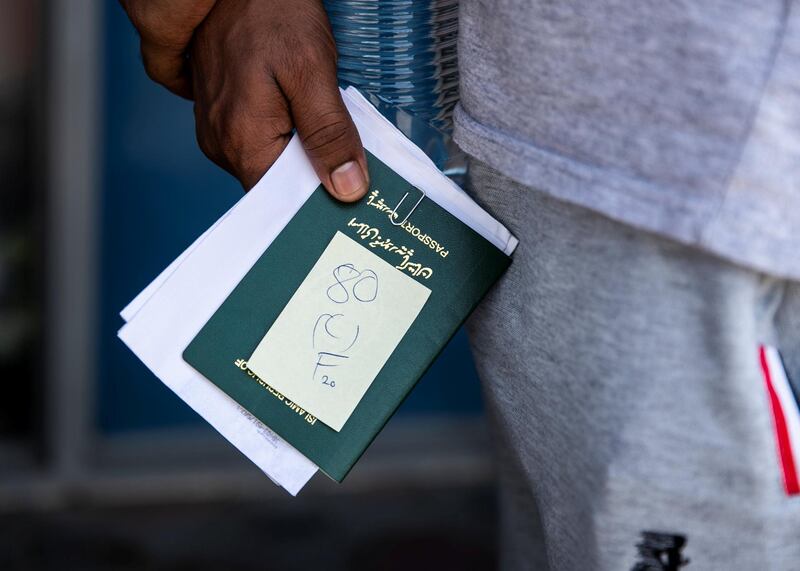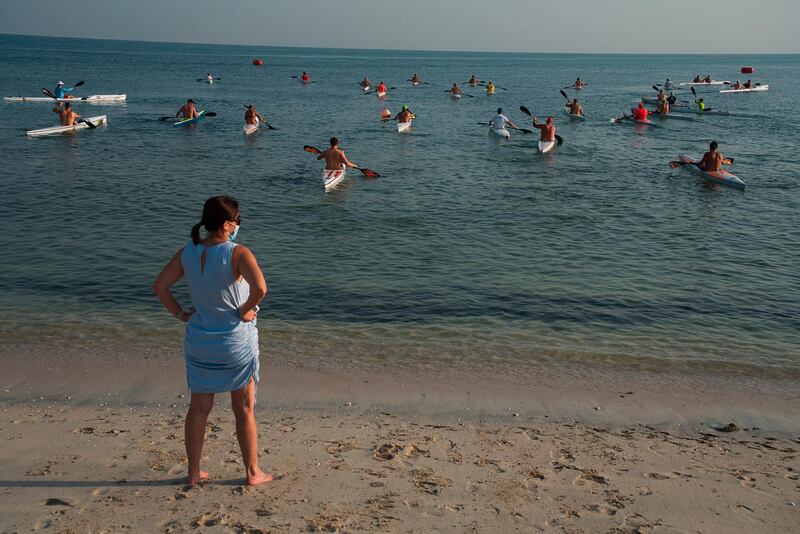When Dubai resident Sidharth Marthur began studying a business degree at the University of California, Los Angeles, last year, his future seemed bright.
But that was before Covid-19 struck, leaving the global economy a very different place to where it was nine months ago.
Many businesses around the world have since been forced to put their recruitment plans on hold as they instead consider mass redundancies, unpaid leave and salary cuts.
But despite this bleak outlook, Mr Marthur, 20, from India, said he remained confident of graduating from UCLA next year and finding work.
"Location matters," he told The National. "The UAE has not been hit as badly as many other countries.
“Everywhere has suffered but the UAE has been able to open up its economy quicker than most.”
Mr Marthur, who is living with his family in Dubai while the pandemic runs its course, said he was looking forward to a career in the financial sector but was keeping his options open.
He said he was aware of job losses and that competition to find work was likely to become tougher.
He also said some of his friends had had existing offers of employment postponed by companies because of the effect of the pandemic. “I’m uncertain how things are going to pan out,” he said.
“I have some friends who were offered jobs after their graduation this year but now they have been told the start date has been delayed.
“So many have lost their jobs and there are more people than ever looking for work, which creates additional competition.
“I would expect a starting salary of around Dh20,000. However, these are uncertain times and I understand salaries might take a hit.”

Shruthi Dhanwanthary, 30, from Dubai, also gave a warning against complacency.
The recent graduate, who has just joined an educational technology firm, said it paid to keep an open mind.
“I did an MBA in contemporary marketing management and graduated three months ago,” she said.
“I noticed there were suddenly a lot more jobs being advertised in the education and technology sector because of what was happening with Covid-19 and children having to learn from home.
“You are seeing companies doing a lot more online seminars and conference calls, and I think it’s an area that’s only going to get busier.
“My advice to graduates is to be ready to change your expectations.” Divya Rajiv Shishodia, 21, a graduate of SP Jain School of Global Management in Dubai, urged her contemporaries to remain focused and upbeat.
She revealed that she had recently been successful in finding work despite finishing her studies only in May.
“Everybody was telling me ‘you won’t find a job because companies are all cutting back due to Covid-19’,” she said.
“I graduated in May and already have been offered a job at a digital marketing firm. You just have to stay positive and be focused on what you want.”
Claire Donnelly, from MHC Consulting, a business and HR consultancy company in Dubai, agreed that lower wages were a likely outcome for prospective employees. She also said increased competition for work was inevitable in the current climate, and that graduates must have realistic expectations.
“It’s going to be harder than ever for graduates to find jobs because the competition is going to be phenomenal,” Ms Donnelly said.
“People with experience are more likely to take a lower wage now, which is more appealing to companies than hiring someone they will have to take the time to sit down with and train.”
David Mackenzie, group managing director for recruitment firm Mackenzie Jones, said graduates could usually expect a starting salary of Dh10,000 a month, but internships should also be closely considered.
“My advice to graduates who can’t get anything at the moment is to offer themselves up free for a few months, like a ‘try before you buy’,” he said. “This is the perfect time to do it because all companies are cutting costs right now, and if [interns] do well, they might be offered a permanent job later.”
Not all companies in the region are looking to cut costs, however. Some are still hiring.
Serco Middle East, a global outsourcing company that employs more than 4,500 people in the region, recently that announced its 2020 graduate programme would start in September.
“We have an extremely important responsibility to provide opportunities for young talent in the region,” said Hana Abu Kharmeh, the company’s human resources director. “I know a lot of companies have put development on hold but there still needs to be a commitment to help create the leaders of tomorrow.”
